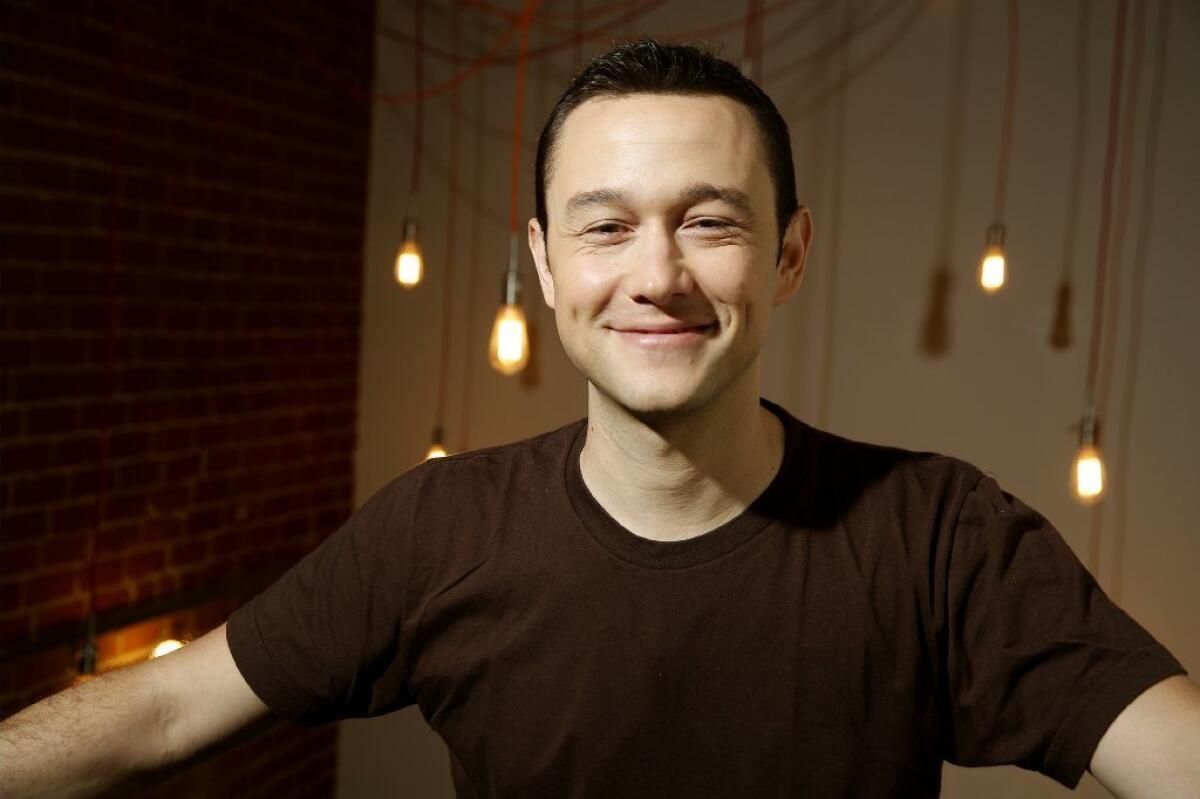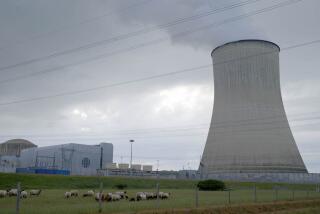Joseph Gordon-Levitt took a stand against governmental dishonesty in playing Edward Snowden

- Share via
In this divisive political season, one story has had bipartisan support. But neither side may want to take credit for it. Mass surveillance of the U.S. population began under the tenure of President George W. Bush and continued under the Obama administration. And the only reason the public found out about it is because of the actions of Edward Snowden, a former National Security Agency subcontractor who turned over the evidence to journalists in 2013 before going into hiding in Russia, where he still resides. For this he has been alternately pilloried and praised. In director Oliver Stone’s film “Snowden,” the emphasis is clearly on the latter, with a disturbing story backing up that position.
Joseph Gordon-Levitt plays Snowden with a measured, thoughtful composure. In character, his voice is lower and slower, as are his actions. This is no rebel or rabble-rouser, but a loyal soldier who believes that America can, and must, face down its darker intentions.
Perched on a chair in the corner of his HitREcord production office in Glendale recently, Gordon-Levitt discussed the nuances of Snowden’s character and story. He was excited that Stone offered him the role but did his own research on Snowden before accepting it.
What convinced you to do it?
What made me really want to play Edward Snowden was how much dishonesty there’s been. The cynic could say, “Oh you’re surprised that they’re telling lies in Washington, D.C.?” But it’s not OK, especially when military officials are telling lies, like the story that’s in the movie about James Clapper. He’s the director of National Intelligence, who oversees more than a dozen intelligence agencies, including the NSA and the CIA, and answers to the president. He was called before Congress a few months before Snowden made the disclosures and was asked, is the NSA collecting millions of records on American citizens? And he said no. When a high-ranking military official like that is going to lie under oath to a senator, that feels to me like our democracy is slipping away. The whole thing about democracy is that it’s not a military dictatorship. No one could prove that James Clapper was lying; Edward Snowden provided that evidence. That made me think it would be an honor to help tell this story to a larger audience.
You visited Snowden in Moscow. What did you take away from that meeting?
The most valuable thing was just getting to be there and observe the personal nuances. Those external details are not just surface level. Oftentimes the way a person talks is indicative of what’s going on underneath, and I did spend a lot of time and effort observing how Ed speaks and trying to speak a bit like that, because I think the way he speaks is indicative of who he is. He’s not a slick guy. He’s a dude who spends a lot of time in front of the computer, is very well read, is very precise in his speaking, sort of speaks in a literary way, as if he’s writing, and he even pronounces his words so you can understand what he says — but then he also sort of swallows them because he’s not a confident, social butterfly type. All of that is interesting and important and relevant to who he is.
He sounds like a very deliberate person.
That’s exactly how he approached doing what he did. And that’s an important distinction that often isn’t made in the press. People say stuff like Edward Snowden leaked classified information to the public. The truth is he didn’t. It’s a nuance but an important nuance. The number of documents Edward Snowden leaked to the public is zero. He picked a very small set of highly qualified established journalists to handle this material, he handed this to them and said I’m not going to decide what of this information goes out to the public. You’re the journalists, you’re going to decide.
Have you kept in touch with him?
Yes, we’ve talked a few times. He’s a special human being. We started a project at HitREcord about themes of technology and democracy and put out the challenge to anybody who wanted to contribute their thoughts and took a bunch of different answers, and adapted them into short films. Ed Snowden contributed, and it was really cool to hear his thoughts on technology and democracy. He is, surprisingly enough, rather optimistic, which I found encouraging.
See the most read stories this hour »
More to Read
From the Oscars to the Emmys.
Get the Envelope newsletter for exclusive awards season coverage, behind-the-scenes stories from the Envelope podcast and columnist Glenn Whipp’s must-read analysis.
You may occasionally receive promotional content from the Los Angeles Times.







